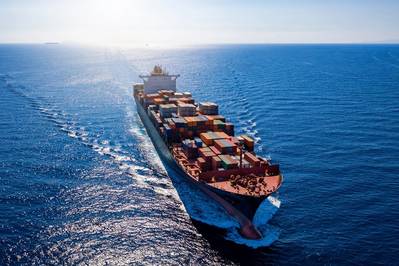Methods for Decreasing Future Fuel Uncertainty
The marine fuel market is undergoing significant change. Following the implementation and impact of IMO 2020, we’re now seeing the focus shift to low and zero carbon fuels, and an expansion of other marine fuel options, predominantly driven by the International Maritime Organization’s (IMO) impending 2030 and 2050 decarbonization targets. With heavy fuel oil (HFO) the dominant fuel type in the maritime sector since the 1960s, there is no question that such incredible change to the market will bring as many challenges as it does opportunities.
The rapid expansion of available clean fuels has unsurprisingly caused uncertainty for ship owners and operators looking to invest and adapt. Especially with the majority of future fuels existing at a stage of relative infancy and supply chains and infrastructure yet to be concretely established. In fact, unanswered ‘future fuel’ questions have led to some ship owners stalling newbuild orders amid uncertainty over fuel strategies.
Driving widespread uptake and encouraging ship owner confidence not only relies on price competitivity and availability but also ensuring that the right bunkering and onboard operational infrastructure is in place. For example, critical fuel supply systems must be scrutinized to ensure all infrastructural elements, such as system parts and fuel availability, are factored into the marine fuel purchasing decision and consequent design. This is vital to empower ship owners to make an educated decision when transitioning existing vessels or commissioning newbuilds.
Prevention is better than cure
With nearly 50 years of experience in delivering fuel supply systems, services and counsel to the maritime industry, we understand the necessity in having a consultative relationship with ship owners and operators to instill confidence in the safe, efficient and cost-effective running of their biggest assets. This close advisory-based relationship has never been more important when considering current market dynamics.
Alongside this high level of consultation, we are also developing products and participating in research projects to support the introduction of the newer fuels which we perceive to be the most viable.
Supporting the uptake of LNG
Although liquefied natural gas (LNG) is increasingly viewed within the shipping industry as a viable bridging marine fuel, significant infrastructural development needs to continue on a global basis. For example, all vessels currently require an additional back-up fuel (low sulfur fuel oil (LSFO)/marine gas oil (MGO)) system to mitigate the risk of vessel downtime in the event of a lack of LNG availability in ports, when on a long transit, or if there is a challenge with an existing LNG system.
This means that within the current market dynamics, LNG cannot run as the only fuel onboard a vessel. Managing the in-operation capabilities of running and switching to LNG is therefore critical in ensuring safety, and concurrently building confidence in the viability of LNG as a safe, compliant, low-carbon fuel.
As the biggest supplier of auxiliary systems to support the use of MGO and marine diesel oil (MDO) onboard LNG vessels, we understand the specific engineering and meticulous approach required to ensure owners and operators are always able to assume operations regardless of circumstance or location. By supplying elements such as ‘’fuel supply units’ for a vessel’s main and auxiliary engines, we are able to provide crew with the flexibility necessary to ensure operational continuity throughout transit.
This approach and expert level of counsel, especially when looking at vessel specific systems, is important to not only support owners with the transition but increase the reputability of LNG.
Progressing the use of biofuels
In conjunction with LNG, biofuels can also play a significant part in the marine energy supply chain, both within the transitionary period as well as a viable long-term future. With many oil refiners turning to biofuel production, due to reduced fuel demand, tightening environmental rules and overseas competition, biofuel production, investment and consequent uptake, is set to rapidly grow.
To support this transition, we are working with industry leaders on the BioFlex project, which aims to determine the most ecologically and economically sustainable way to evolve the marine energy supply chain and replace fossil fuels. The project is due to run for three-years and is funded by Business Finland, VTT Technical Research Centre of Finland, and enacted by participating companies that include Fortum, Neste, Pohjanmaan Hyötyjätekuljetus, Polartek, ST1, Valmet and Wärtsilä.
Through our work with biofuels, commencing in the early 2000s, we have found that biofuels can be corrosive and wearing on the metals typically used in fuel units; the acidity, reactivity, filtration properties and coagulation of biofuels requiring carefully tailored specialized solutions, such as acid-proof materials and fuel specific heating and insulation solutions. We are therefore applying our expertise to ensure that every material used in a vessel’s fuel supply unit is examined to ensure a safe environment for the fuel and wellbeing of those on board. Our findings will also further inform the design of our new product family, which aims at supporting the use of biofuels and changing market demand.
Paving the way for future fuels
There is no question as to whether the marine fuel market will be undergoing momentous change over the next decade, this is certain. However, uncertainty remains around how we are to best implement and manage this change.
We believe a holistic and forensic approach is fundamental in supporting ship owners and operators in all elements of transition within the supply chain, where providing expert engineering and ongoing research will be key to fully realizing future fuels in the marine industry. And in doing this, building confidence and driving uptake amongst ship owners and operators, so that they can thrive within this transformative market.












